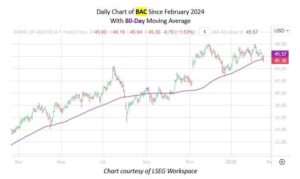The Potential Impact Of Musk’s Proposed $5,000 DOGE Dividend Checks On American Households
Elon Musk recently indicated potential interest in a $5,000 stimulus check payout to American taxpayers, termed the DOGE Dividend check. On Wednesday, President Trump added his support to the potential DOGE refund saying, “there’s even under consideration a new concept where we give 20 percent of the DOGE savings to American citizens. The numbers are incredible, Elon, so many millions, billions, hundreds of billions.”
To understand its potential impact of a DOGE Dividend on Americans, we can compare the proposed amount to typical tax refunds and previous stimulus checks and examine the broader implications for household financial well-being.
Comparing the DOGE Dividend Check To Average Tax Refunds
One way to contextualize the impact the DOGE Dividend check would have is by comparing the dollar amount to the average tax refund that Americans receive every year. As of Feb 7, 2025, the Internal Revenue Service reported that the average tax refund was $2,065, with direct deposit refunds averaging slightly higher at $2,165. This represents a 30% increase from the previous year, yet the proposed $5,000 DOGE Dividend would still be more than double the average refund, providing a substantial financial boost to taxpayers.
According to the Financial Health Network’s Financial Health Pulse 2024 report, 70% of American households remain financially unhealthy with day-to-day financial realities worsening for many. “The data clearly show financial health in America – especially that of moderate and middle-income households – remains precarious and is influenced by a reliance on credit to stay afloat,” said Jennifer Tescher, president and CEO of the Financial Health Network. “While receding inflation and lower interest rates will likely have some positive impact, Pulse findings over time reinforce that we need a systems-level change from industry and policymakers to realize significant, lasting improvements in household financial health.”
The DOGE Dividend check could provide a one-time boost to American households and help improve their financial health by paying off debt or increasing their savings; however, it would not lead to the systemic and structural changes that Tescher notes.
Applying Insights From COVID-19 Stimulus Checks To DOGE Dividend Checks
Another method to assess the potential impact of a DOGE Dividend check is to consider the impact of pandemic stimulus checks. During the COVID-19 pandemic, the federal government issued multiple stimulus payments to support households. The first round in April 2020 provided up to $1,200 per eligible adult, significantly increasing disposable personal income and leading to a surge in the personal savings rate, which reached a record high of 33.7% in April 2020.
Subsequent rounds offered $600 and $1,400 per eligible individual, respectively. Studies, including one by the National Bureau of Economic Research, indicate that households allocated approximately 40% of these stimulus payments to immediate spending, saving about 30% and using the remaining 30% to pay down debt.
This behavior provided a short-term economic stimulus and improved household balance sheets, reducing financial vulnerability. It is likely that the DOGE Dividend would have a similar impact.
Potential Impact Of The DOGE Dividend Check
If implemented, the $5,000 DOGE Dividend check could have profound effects:
- Enhanced Financial Security: A lump sum of this magnitude would enable households to bolster emergency savings, pay off debts, or invest in long-term assets, thereby enhancing financial stability.
- Economic Stimulus: While a portion of the funds would likely be saved or used to reduce debt, a significant share would be spent on goods and services, stimulating economic activity.
- Inflation Considerations: Injecting substantial funds into the economy could raise concerns about inflation, as increased demand might outpace supply in specific sectors. CITE
The Upshot: Potential Impact Of DOGE Dividend Checks
The proposed $5,000 DOGE Dividend checks would surpass typical tax refunds and previous stimulus check payments and would offer a considerable financial infusion to American households. Drawing from the experiences of prior stimulus measures, such a payout could enhance personal financial well-being and stimulate economic activity. However, careful consideration of potential inflationary effects and the overall economic context is crucial in evaluating the feasibility and desirability of this proposal. In upcoming articles, I’ll assess how the DOGE dividend could be implemented at a lower overall cost and discuss the feasibility of a DOGE check in more detail.
Read the full article here
















